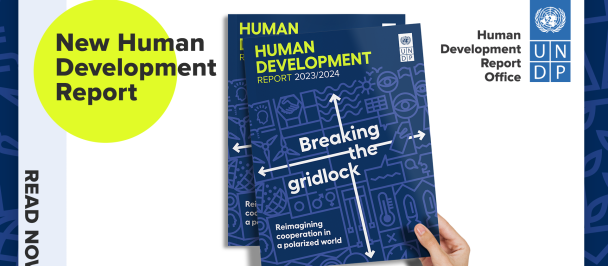Forging new ways through uncertainties in Libya
November 16, 2022
Tripoli, 16/November/2022 – Today, the United Nations Development Programme and the National Economic Social Development Board launched the new Human Development Report for 2021/2022 in Tripoli, bringing together local and international voices on Libya’s progress in human development in the midst of multiple global crises.
The launch of the report was an opportunity to foster discussions on the layers of uncertainty unsettling the lives of so many. As the COVID-19 pandemic affected billions of individuals around the world, the past two years erodes progress in human development globally.
The report recommends changes in policies emphasizing investments in renewable energy and preparations for future pandemics. It also highlights the need for better insurance systems to help communities prepare for any uncertainties. Moreover, innovation in all its forms, technological, economic, and cultural can strengthen a person's ability to adapt to new difficulties.
During the event, the National Economic Social Development Board General Manager, Dr. Mahmoud Al-Futaisi says “The Board attributes great importance to the Human Development Report 2021-2022, as it sheds light on the many challenges related to local, regional and international context. We presented our findings on the report and highlighted the role of the Board to address these issues within our future projects.”
According to UNDP’s Resident Representative, Mr. Marc-André Franche “As for most countries, the pandemic eroded human development gains in Libya. But Libya conflicts and instability over the last decade means the lag is significantly greater. Libya can recover and increase its human development, notably thanks to its wealth and young population. But to do so, it needs to invest urgently in improving basic services and livelihoods, ensure that social protection programs are reformed to target those actually in need. Doing so sustainably needs a political solution to the ongoing impasse and an elected executive”
The report also presented the Human Development Index (HDI) which is a summary measure for assessing long-term progress in three core areas of human development: a long and healthy life, access to knowledge and a decent standard of living. Libya is placed in the “high human development” category, ranking 104th among 191 countries.
Between 1990 and 2021, Libya's life expectancy at birth changed by 2.5 years, mean years of schooling changed by 3.8 years and expected years of schooling decreased by 1.2 years. Libya's Gross National Index per capita changed by about 5.9 percent. This said, there has been a decrease in index value since 2010, due to a decade-long political instability and conflict that halted the provision of basic services and affected the economic performance of the country, affecting the human development progress.

 Locations
Locations
